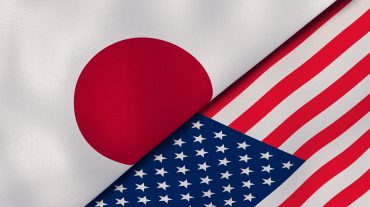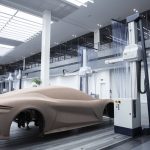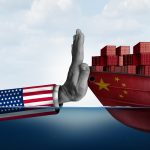
- Electric Vehicles
- Global Markets
- Tariffs
U.S.–Japan Auto Deal Slashes Tariffs, Spurs $550B Investment
6 minute read

U.S.-Japan automotive trade agreement sparks global market rally while securing massive infrastructure investment for American manufacturing expansion
Key Takeaways
- U.S.-Japan trade deal reduces automotive tariffs to 15% from previous 27.5% rate, sparking premarket gains across global automakers including GM up 1.7% and Toyota surging 14%
- Japan commits $550 billion investment in U.S. with America receiving 90% of profits, expected to create hundreds of thousands of jobs in manufacturing and tech sectors
- Global automotive stocks rally on trade normalization as European and Asian manufacturers anticipate enhanced supply chain efficiency and improved market access
Introduction
Global automotive markets surge as the United States and Japan finalize a comprehensive trade agreement that significantly reduces tariffs on vehicle imports and establishes a framework for massive Japanese investment in American infrastructure. The deal, announced by President Trump, reduces U.S. tariffs on Japanese automobiles from 27.5% to 15% while securing Japan’s commitment to invest $550 billion in the United States.
The agreement marks the fifth major bilateral trade deal reached by the current administration and represents a strategic reset for the world’s largest automotive trading relationship. According to CNBC, U.S. automakers experience immediate market benefits, with General Motors shares rising 1.7% in premarket trading while Ford Motor edges up 0.2%.
Key Developments
Japanese Prime Minister Shigeru Ishiba confirmed the agreement following intensive negotiations led by Japan’s top trade negotiator Ryosei Akazawa, who made eight trips to Washington to finalize terms. The deal emerges just days after Ishiba’s ruling Liberal Democratic Party suffered significant electoral losses, adding political urgency to the trade discussions.
President Trump characterizes the agreement as the “largest TRADE DEAL in history,” emphasizing Japan’s commitment to open its markets to American cars, trucks, rice, and agricultural products. The 15% tariff rate, while higher than Japan’s initial preference, represents a substantial reduction from the 25% rate Trump originally proposed.
The agreement includes reciprocal market access provisions, with Japan agreeing to reduce barriers on U.S. automotive exports while maintaining existing quotas on American rice imports. Capital Economics analysts estimate the deal reduces the average tariff rate for Japanese exporters by approximately one percentage point.
Market Impact
Automotive stocks across three continents respond positively to the trade normalization announcement. Japanese manufacturers lead the rally, with Toyota shares climbing 14%, Honda advancing over 11%, and Mazda rising nearly 17% on expectations of improved profit margins and market share expansion.
South Korean automakers benefit from speculation that Seoul might negotiate similar terms, driving Hyundai Motor up 7.5% and Kia Corp higher by 8.5%. European automotive stocks mirror this momentum, with Stellantis, Volkswagen, Mercedes Benz, and BMW posting strong performances despite mixed quarterly results.
Tesla shares gain 0.3% ahead of quarterly earnings, while automotive suppliers prepare for increased demand. The reduced tariff burden preserves Japanese manufacturers’ competitive positioning in the critical U.S. market, where automotive exports constitute over a quarter of Japan’s total exports to America.
Strategic Insights
The agreement accelerates manufacturing localization strategies among Japanese automakers and suppliers. Companies like Denso and Aisin Seiki increase investments in North American production facilities to reduce tariff exposure and capitalize on the expanding electric vehicle components market.
The deal particularly benefits the semiconductor and green energy sectors critical for automotive electrification. Japan’s $550 billion investment commitment targets infrastructure and energy projects that support domestic manufacturing ecosystems, creating synergies between traditional automotive production and emerging EV technologies.
Logistics providers gain from trade normalization as supply chains adapt to new compliance requirements. West Coast Shipping and similar companies provide essential services for auto parts manufacturers navigating fragmented supply networks under USMCA guidelines.
Expert Opinions and Data
Trump describes the financial structure as highly favorable to American interests, stating that “America receives 90% of the profits” from Japan’s investment commitment. He emphasizes the deal’s job creation potential, projecting “hundreds of thousands of jobs” in manufacturing and related sectors.
Ishiba addresses domestic concerns about agricultural concessions, insisting “This agreement does not sacrifice Japanese agriculture” while confirming that U.S. rice imports remain within existing quotas. Japanese negotiators successfully avoided volume restrictions on automotive exports, preserving market flexibility.
However, American automotive industry leaders express reservations about the terms. Matt Blunt, president of the American Automotive Policy Council, criticizes the agreement, arguing that “any deal that charges a lower tariff for Japanese imports with virtually no US content than the tariff imposed on North American-built vehicles is a bad deal for U.S. industry and U.S. auto workers.”
Jefferies analysts view the agreement as removing significant uncertainty from market calculations, noting that reaching consensus now alleviates concerns over future trade disruptions that have weighed on investor sentiment throughout the year.
Conclusion
The U.S.-Japan trade agreement establishes a new framework for automotive commerce between the world’s largest economies, reducing immediate tariff pressures while creating long-term investment commitments. The deal removes a significant source of uncertainty for global automotive supply chains and provides clearer regulatory pathways for manufacturers navigating the transition to electric vehicles.
The agreement’s immediate market impact demonstrates investor confidence in normalized trade relations, while the substantial investment commitments signal deeper structural changes in manufacturing and technology collaboration. The automotive sector now operates under reduced regulatory friction, enabling more strategic resource allocation toward innovation and market expansion.








